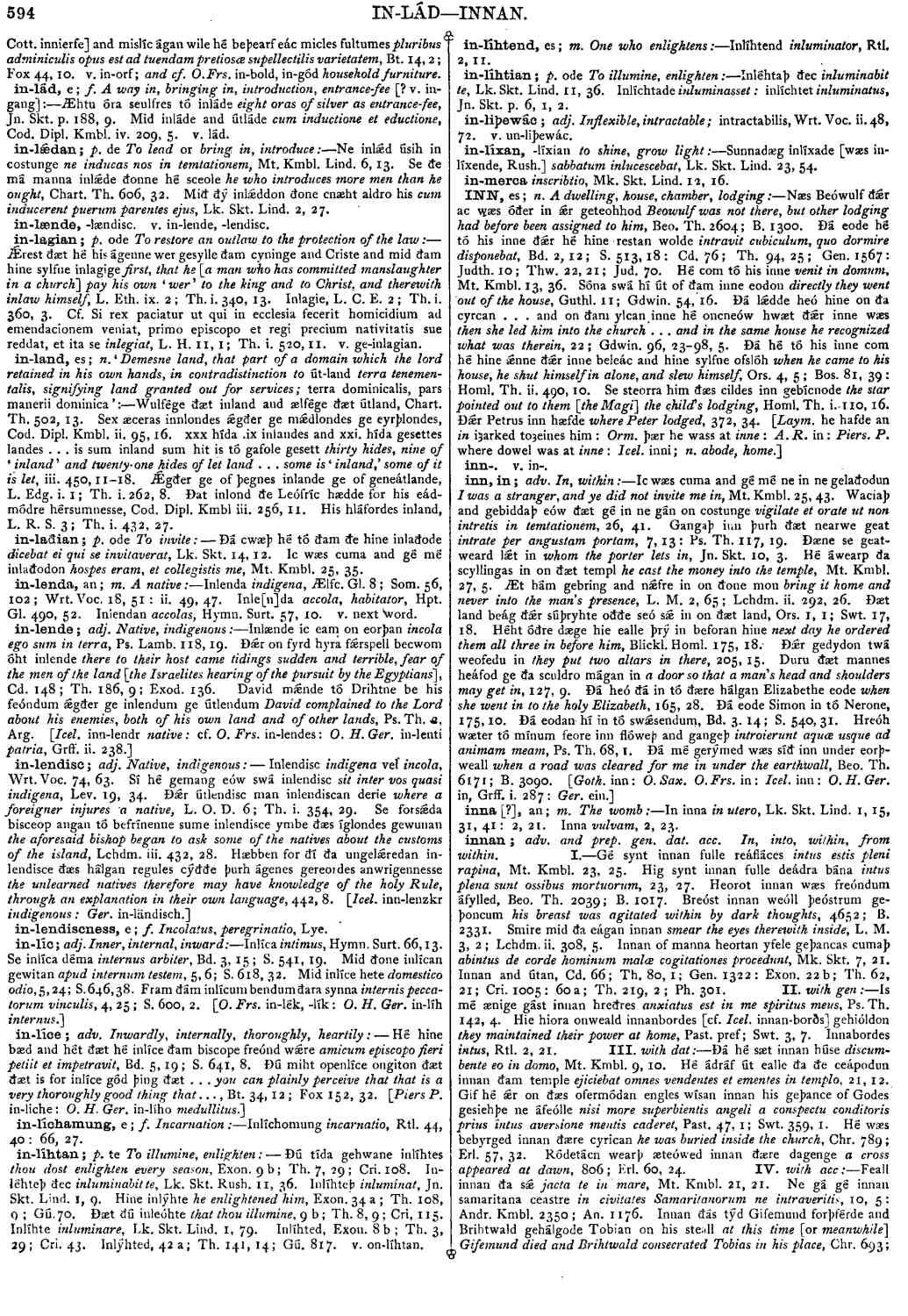inn
- adverb
-
Ic wæs cuma and gé mé ne in ne gelaðodun
I was a stranger, and ye did not invite me in,
- Mt. Kmbl. 25, 43 .
-
Waciaþ and gebiddaþ eów ðæt gé in ne gán on costunge
vigilate et orate ut non intretis in temtationem,
- 26, 41 .
-
Gangaþ inn þurh ðæt nearwe geat
intrate per angustam portam,
- 7, 13 :
- Ps. Th. 117, 19 .
-
Ðæne se geat-weard lǽt in
whom the porter lets in,
- Jn. Skt. 10, 3.
-
Hé áwearp ða scyllingas in on ðæt templ
he cast the money into the temple,
- Mt. Kmbl. 27, 5 .
-
Æt hám gebring and nǽfre in on ðone mon
bring it home and never into the man's presence,
- L. M. 2, 65 ;
- Lchdm. ii. 292, 26 .
-
Ðæt land beág ðǽr súþryhte oððe seó sǽ in on ðæt land,
- Ors. 1, 1 ;
- Swt. 17, 18 .
-
Héht óðre dæge hie ealle þrý in beforan hine
next day he ordered them all three in before him,
- Blickl. Homl. 175, 18.
-
Ðǽr gedydon twá weofedu in
they put two altars in there,
- 205, 15 .
-
Duru ðæt mannes heáfod ge ða sculdro mágan in
a door so that a man's head and shoulders may get in,
- 127, 9 .
-
Ðá heó ðá in tó ðære hálgan Elizabethe eode
when she went in to the holy Elizabeth,
- 165, 28 .
-
Ðá eode Simon in tó Nerone,
- 175, 10 .
-
Ðá eodan hí in tó swǽsendum,
- Bd. 3. 14 ;
- S. 540, 31 .
-
Hreóh wæter tó mínum feore inn flóweþ and gangeþ
introierunt aquæ usque ad animam meam,
- Ps. Th. 68, 1 .
-
Ðá mé gerýmed wæs síð inn under eorþweall
when a road was cleared for me in under the earthwall,
- Beo. Th. 6171 ;
- B. 3090.
Bosworth, Joseph. “inn.” In An Anglo-Saxon Dictionary Online, edited by Thomas Northcote Toller, Christ Sean, and Ondřej Tichy. Prague: Faculty of Arts, Charles University, 2014. https://bosworthtoller.com/20637.
Checked: 1